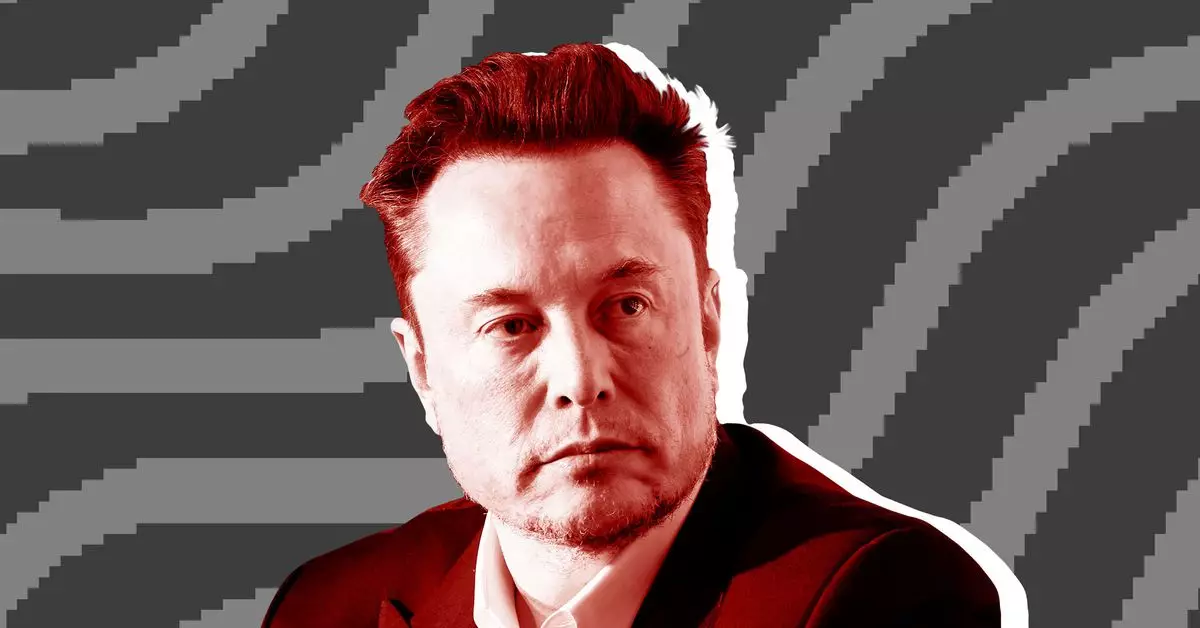In a surprising turn of events following the recent presidential election, President-elect Donald Trump has made headlines by appointing business magnate Elon Musk and entrepreneur Vivek Ramaswamy to spearhead a new initiative aimed at reforming the American government. Dubbed the Department of Government Efficiency—an acronym that amusingly aligns with the popular cryptocurrency Dogecoin (DOGE)—the initiative seeks to streamline federal operations and eliminate inefficiency within government bureaucracies. This decision not only raises eyebrows but also ignites debates over the blending of business acumen with public governance.
The stated goals of the DOGE initiative are ambitious. Musk and Ramaswamy are tasked with dismantling layers of bureaucracy, slashing what is deemed unnecessary regulation, and curtailing wasteful government spending. According to Trump’s declarations, the duo has a monumental task ahead of them: reforming federal agencies and restructuring the overall approach to governance, delivering efficiency that has been longed for by Republican policymakers. This initiative is framed as a response to a perceived overly bloated government and aims to create a leaner, more accountable administrative system.
The implications of their assignment extend beyond mere paperwork; there is a palpable sense of urgency surrounding their mandate. By July 4, 2026, a symbolic date marking the 250th anniversary of the Declaration of Independence, Musk and Ramaswamy are expected to implement significant changes, effectively reimagining how government operates. This deadline suggests that the administration views their success not just in terms of efficiency, but also as a celebration of American ideals.
Musk’s ambitious targets indicate a potential reduction of government spending by a staggering $2 trillion. However, analysts and insiders have cautioned that such a substantial cut might necessitate revisiting significant programs, potentially including national defense or social safety nets like Social Security. The feasibility of achieving such extensive cuts without provocation and unrest is questionable, prompting skepticism regarding the efficacy of the DOGE initiative.
The financial and social ramifications of these cuts must provide a keen area of focus for Musk, a leader accustomed to the high stakes of corporate management. His acknowledgment of possible severe short-term impacts underscores the complexity of the task at hand. If the DOGE initiative is to succeed, a balance must be struck between immediate financial goals and the long-term health of citizens dependent on government programs.
Trump’s endorsement of such a dramatic overhaul reflects broader themes in American politics—particularly the allure of libertarian thought that advocates for minimal government intervention in economic matters. Critics could argue that this approach may disregard essential services that aid millions of Americans. Furthermore, the selection of Musk—who previously expressed both admiration and financial support for Trump during the election—raises questions about partisanship and the motives behind the initiative.
The collaboration between Musk and Ramaswamy may also reflect a shift toward a corporate-savvy style of governance, wherein business methodologies are heralded as the ultimate solution to governmental inefficiencies. While this may appeal to a certain electorate that favors entrepreneurial solutions to systemic issues, it risks alienating those reliant on a robust, caring government.
Both Musk and Ramaswamy bring unique perspectives to their new roles, with Musk known for his disruptive ventures across tech industries and Ramaswamy for his innovative approaches in the pharmaceutical sector. This dual influence may spell a future where technology significantly shapes public policy and governance strategies. Relying on data-driven decision-making could lead to increased transparency and accountability in governmental operations—ideals any public entity should strive towards.
Ultimately, the success or failure of the DOGE initiative will not only be measured in budget cuts or agency restructuring. It will hinge on the ability of Musk and Ramaswamy to navigate the treacherous waters of American politics, while constructing a government that is both efficient and responsive to the needs of its citizens. The outcome of this initiative could ultimately redefine government as we know it, merging the realms of business and public administration in unprecedented ways.

